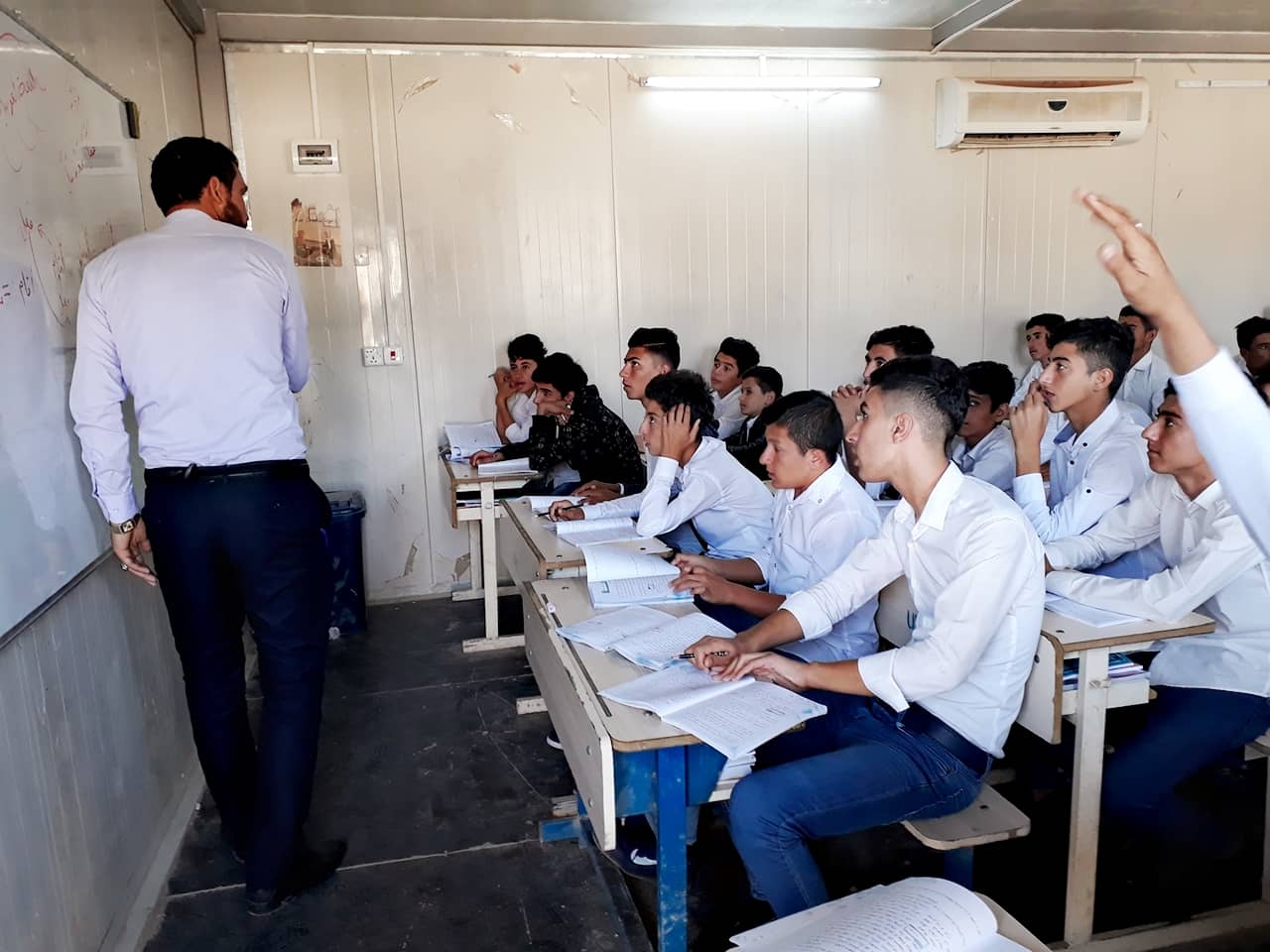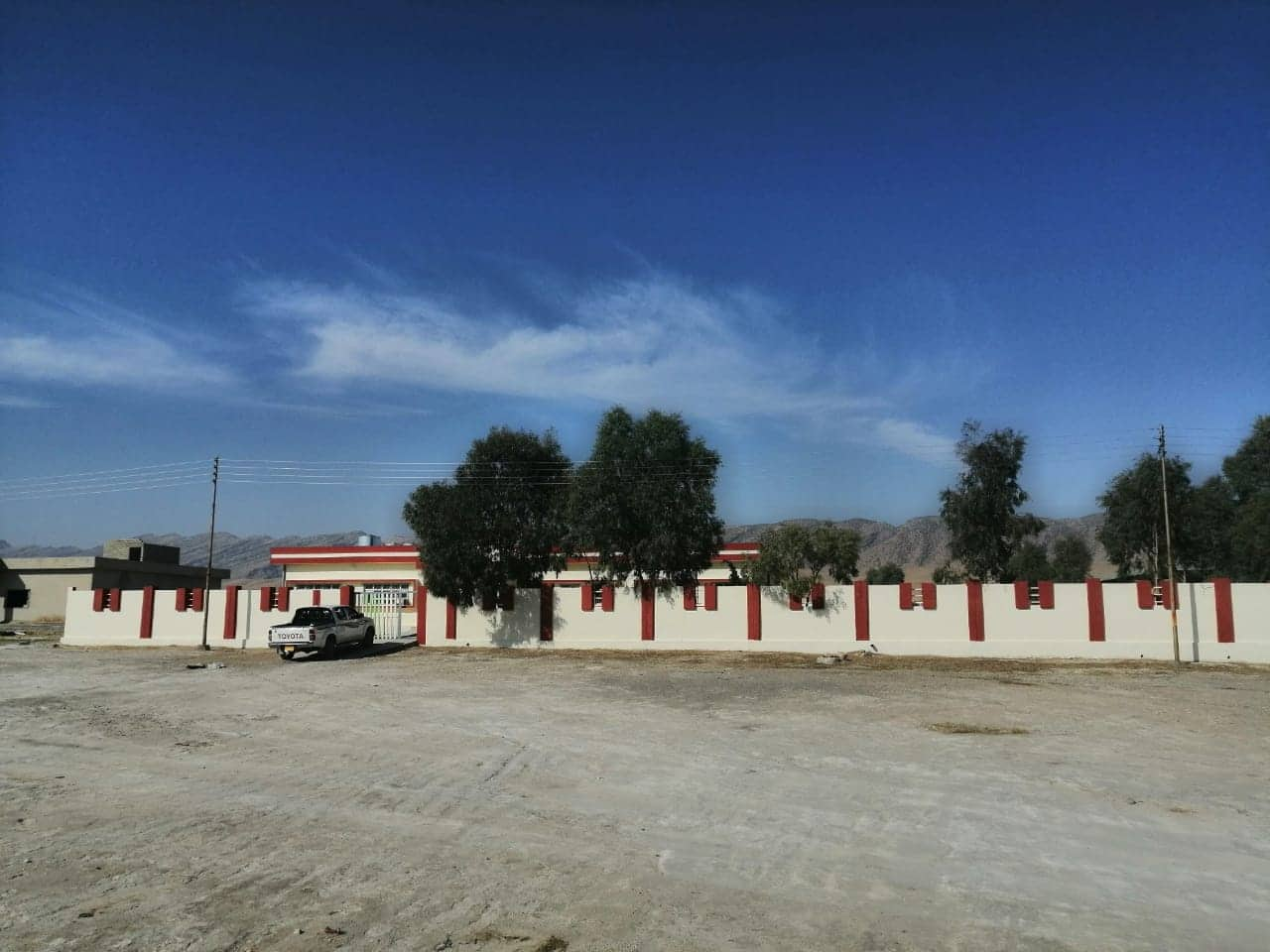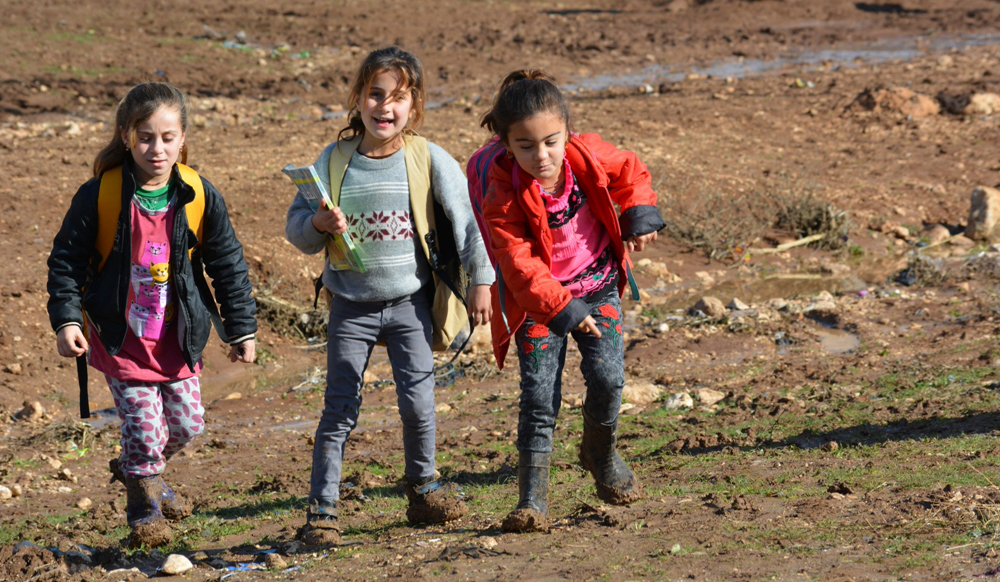“I have been a lecturer for two years and they have stolen our wages. Now, they want to reopen the schools and start final exams,” said Madlin Hussein, an Ezidi lecturer in Snune, a sub-district of Sinjar, reaffirming that this injustice has made her concerned that she might not be able to teach the children with the same devotion she once had.
Issues of corruption and injustice toward Ezidi teachers have emerged as the spread of the novel coronavirus brought education to a halt. Because of a national lockdown, people are confined to their homes, which has disproportionately affected the education of minority children.
The controversy began with the disappearance of nearly 1.1 billion Iraqi dinars allocated for the salaries of teachers employed by the Sinjar Directorate of Education, which is under the jurisdiction the Kurdistan Regional Government (KRG). As a result, the teachers, who are mostly members of the Ezidi ethno-religious community, have not been paid.
The scandal began after the war of the Islamic State groups (IS) when the government recruited hundreds of teachers as a part of its efforts to return Internally Displaced Persons (IDPs) to their homes.

Duhok, a classroom at the Kabartu IDP camp, a predominant Ezidi camp, 2019. Photo: Ammar Aziz
Madlin Hussein, a graduate at the Institute of Accounting in Mosul, told KirkukNow, “I finished school during a challenging and miserable time and I had no job. At that time, the schools needed teachers so I became a teacher at an elementary school for two years.”
The schools needed teachers so I became a teacher at an elementary school for two years
“We were just waiting to be paid throughout those two years… even God would not accept that. I did not even have money to buy clothes, but I continued teaching.”
Hussein taught four classes daily for which she was to receive 300 thousand Iraqi dinars (250 dollars) per month. She should have received at least six million dinars (5,000 dollars) for her service over the past two years.
The teachers’ salary scandal coincides with the outbreak of coronavirus, which has suspended education in the district of Sinjar, regarded as the historical homeland of the Ezidis.
The KRG has set June 1 as the date for reopening schools in the region after three months of closure. However, frustration with official corruption may cause teachers to boycott classes in Sinjar district.
Saido Shamo, who has been a lecturer for four years in the Grozir sub-district of Sinjar, claims, “most of the schools in Sinjar and Snune sub-district are run by the teachers, but [the government] stole our money.”
Most of the schools in Sinjar and Snune sub-district are run by the teachers, but [the government] stole our money
Because of coronavirus, students in Iraq and the Kurdistan Region missed nearly half of this year’s curriculum and some of their teachers say they are not ready to open the schools’ doors.
“We will accept going back to classes and at least make up for some of the material that the students missed, but only if [the government] provides us with a little money so that we could afford our daily necessities. Otherwise, we will start boycotting the final exams,” Shamo insisted. Shamo lost his job due to the coronavirus lockdown and has no sources of income.
Nineveh, three elementary students in Sinjar district, 2019. Photo: Ibrahim Ezidi
KirkukNow has obtained data showing that there are at least 400 teachers in Sinjar district employed by the KRG Ministry of Education. In the event of a teachers’ strike during final exams, Ezidi students’ education will be at stake.
The sum of one billion, ninety-eight thousand dinars was earmarked for the Sinjar’s education budget, and most of this was allocated for Ezidi teachers’ wages.
Halz Sa’id, a member of the Kurdistan Region Parliament’s Education Committee, told KirkukNow, “the former Director of Education in Sinjar, his brother, and the Director of Accounting began this scheme to embezzle teachers’ wages during the rule of the Islamic State group (IS) and the displacement of the people of Sinjar. The case has been submitted to the Integrity Commission (in Duhok) and an investigation is ongoing.”
The former Director of Education has fled, but his brother and the Director of Accounting have been arrested at the order of the Attorney General, who was recommended to do so by the Directorate of Education in Duhok.
Maysar Haj Salh, who has replaced the former Director of Education in Sinjar, told KirkukNow, “names of ‘ghost teachers’ were registered, and others did not receive salaries. [But] they received salaries as teachers for years.”
“If the money is reclaimed from the former director, we would distribute it to the teachers,” Salh said, “but if the money is not seized, then we will not be able to pay wages because the KRG is in a deep economic crisis.”
If the money is not seized, then we will not be able to pay wages because the KRG is in a deep economic crisis
He mentioned that if the government decides to hire more teachers, the teachers currently on the payroll will have priority with regards to job placement.
The scandal has only affected the schools under the KRG Ministry of Education.

Sinjar, Warda school in Grozir sub-district, which was renovated by the Noble Peace Prize Winner Nadia Murad and the Youth Bridge Organization, 2019. Photo: Youth Bridge Organization
Earlier this month in a meeting of parliament, Alan Hama Sa’id, the KRG Minister of Education, said, “we have been combating corruption under orders from the prime minister and one [case] involves the directorates in Duhok governorate and teachers’ wages worth one billion, ninety-eight million IQD.”
We have been combating corruption under orders from the prime minister
Shahab Ahmad, another teacher, called upon the KRG to distribute a portion of the wages to teachers so that this year’s education of Ezidi IDPs will not be lost to coronavirus and a potential teachers’ strike.
“If we boycott holding final exams, then this year’s education will be lost for the majority of Ezidi IDPs.”





